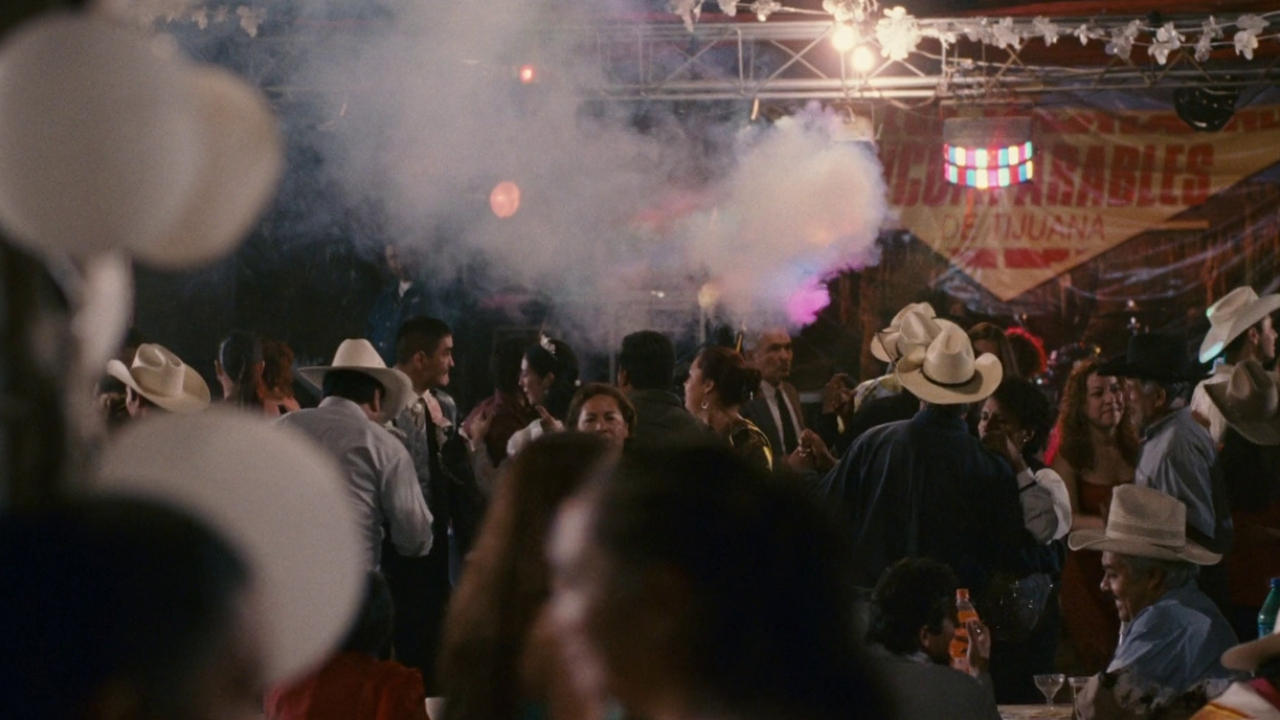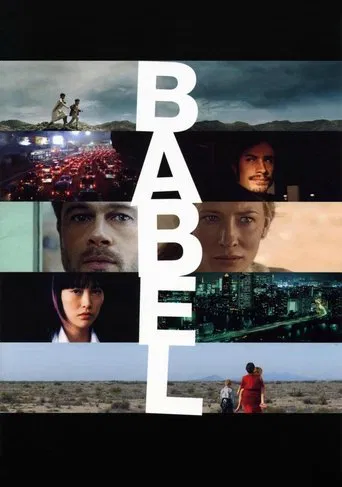

'Babel' is a well-acted melodrama, with four separate stories, that may be compelling, but don't exactly fit well with each other. The whole intent of this film was to tell four different stories of people across the globe, and then connect them all. While three out of the four stories do connect nicely together, the fourth plotline about Japanese girl Chieko stands out far too much from the rest of the film and is poorly tied, with an insignificant connection. The three 'key' stories, involving Yussef and Ahmed (played by Boubker Ait El Caid and Said Tarchani) in Afghanistan, joined by Richard and Susan (played by Brad Pitt and Cate Blanchett) as well as Amelia (played by Adriana Barraza) in Mexico all fit well together and display a captivating and sorrowful story. The characters are directly involved with one another, and they are even set in a similar desert climate which gives similar aesthetics and enhances the feeling of connection. In stark contrast, the story about Chieko (played by Rinko Kikuchi) is set in the modern city of Japan and is loosely connected to the others. Her storyline may be a good one in its own right, but it ultimately doesn't fit with the rest of the puzzle that is the film. However, this disconnect is not to the demise of the film as it is redeemed by the fantastic acting, with Cate Blanchett, Brad Pitt, Mustapha Rachidi and Adriana Barraza being clear highlights. Alejandro G. Iñárritu's direction is brilliant as this film is filled with captivating shots of the different settings and the cinematography is striking. The real highlight of this film is in the soundtrack, by Gustavo Santaolalla. The music is extremely effective in provoking the emotional response intended for its audience and is certainly deserving of it's Oscar win. Overall, this film is an epic piece of misery, that is only let down by its hit-and-miss attempt at telling different stories that are meant to connect well.
... View MoreEverything about this movie was contrived, gratuitous and small minded. Never having viewed a Alejandro González Iñárritu film before, there will be no wasted time on one again.
... View More'Babel' is not one of Alejandro González Iñárritu's best films and falls short of being a masterpiece. It does however show how immensely talented he is as a director who to me has not made a bad film, 'Babel' while divisive is still a very good film that's fascinating and often beautiful. Even when Iñárritu is at his weakest or not at his best he is much better than most directors at their worst.Not without its faults. 'Babel' is a little overlong and the ending is abrupt. A couple of parts are on the contrived side. 'Babel' is a film where the pros far outweigh the cons, though it is easy why some people would not be, and have not been, totally enamoured by it.It's exquisitely filmed with beautiful and atmospheric settings. Iñárritu's direction is as superbly accomplished as ever. The music is haunting and fits very well, the sound has great authenticity.Scripting is thought-provoking, exploring its themes well and deftly moving between its four stories and characters. 'Babel' is coherently structured, remarkable for more than one story plot going on which don't give an over-stuffed feel thankfully.The acting is one of the best assets. Brad Pitt is a commanding lead, and while Cate Blanchett could have more to do she is a strong presence. Gael García Bernal is more than up to their level. The best performances come from a heartfelt Rinko Kikuchi and a formidable Adriana Barraza.In summary, fascinating and often beautiful. 8/10 Bethany Cox
... View MoreThis movie, like Crash (2004), follows the idea of interlocking stories that come together at the end, demonstrating some sort of human "butterfly effect" or cause-and-effect relationship between human events. While director, Allejandro Gonzalez Inarritu DID have some success in this genre with his DEATH TRILOGY: Amores Perros (2000), 21 Grams (2003), Babel (2006). The later, the one reviewed here, seemed totally contrived and unbelievable to me. Here, three seemly separate stories in distant locations—San Diego (and Mexico), Morocco (and Tunisia) and Tokyo—come together in the end. But, to pull these stories together to make some sort of statement, I had to stretch credulity beyond MY ability.==Why would an American couple go to Morocco to straighten their marital difficulties?==Why would a Japanese man visit Morocco to hunt? I think that Inarritu was trying to make statements about three VERY disparate current issues--gun control, illegal immigration, and fear of terrorism. But, he seemed forced to stray TOO far to cram all these issues into one movie.BUT STILL, themes DO come though in the movie: 1) that there is a lack of communication between cultures and languages; 2) that we all have common ground as humans beings; 3) that we all face unknown fears; and that we all share certain hopes and fears.AND ANOTHER THEME that seemed clear to me, had to do with the innocence and vulnerability of children and the need to recognize that fact: The most moving of the stories was the segment about a young Japanese deaf- mute girl and her feeling of alienation--from both her family, her friends, and ultimately, herself.
... View More